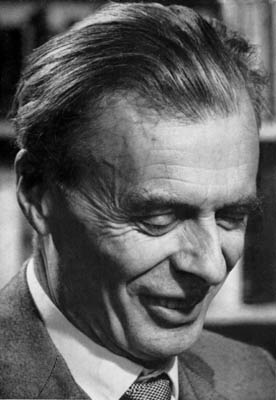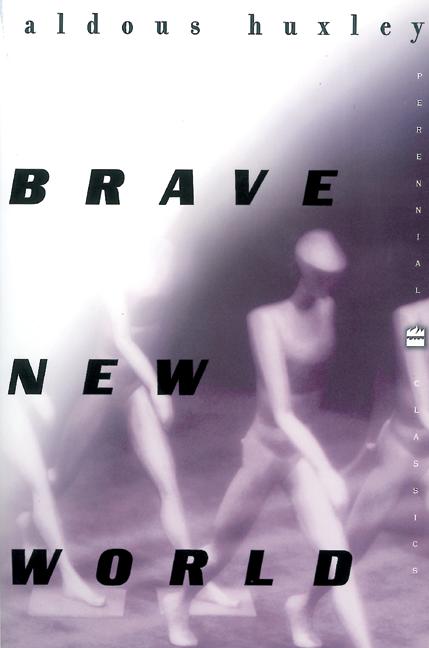Plot Summary & Background
Set in London in the 26th century A.D., the entire planet has been united under one World State. While the world is void of war, crime, and poverty, familial structures and human emotion are also obsolete, replaced by sexual freedom and a drug called soma (Greek, body). Society is divided into five classes, and everyone strongly holds to the ideals of Henry Ford. Following the lives of Lenina Crowne and Bernard Marx, the reader captures the essence of the citizens in this totalitarian World State.
The second half of the novel explores John the Savage, a citizen of the reservation in New Mexico, living outside the hands of the mainstream World State. He then visits the World State and is appalled by what humanity has become. He ultimately commits suicide out of his horror and sadness, following after Shakespeare's Othello.
For more on the book, please visit the following links: Wikipedia
Critical Analysis: Genetic & Social Engineering in Brave New World: A Look at the Concept of Humanity, by Todd J. Schmid
While Huxley's Brave New World is replete with a philosophy centered around a plethora of social issues, the concept of genetic and social engineering is of particular interest in its relation to the notion of what it means to be truly human. In a society where parenthood and love have grown obsolete, the fundamental basis for humanity is seriously questioned. Yet it is essential to point out that this challenge to "traditional humanity" is the result of advantaged genetic-related technology. The novel raises important questions, such as: What is the object of genetic engineering? How is humanity defined? Who determines the ideal characteristics for human beings?
Arguably the protagonist of the book, John is referred to as a "savage." Undoubtedly used to denote inferiority, the "natural" human being is compared to the engineered humanity of a science-based world. Yet he prefers a world where he can experience the fullness of existence and drink life to the dregs. As he remarks, "But I don't want comfort. I want God, I want poetry, I want real danger, I want freedom, I want goodness. I want sin" (240). In this sense, John conceives humanity as the entirety of experience, both good and bad. In spite of the supposed class system imposed by genetic manipulation, John, much like Vincent in Gattaca, overcomes the stigma surrounding an unnatural conception of humanity.
Huxley's novel ultimately attacks the ideals of the utopian tradition. As William Matter writes in Science Fiction Studies, "In order to establish a long-lasting utopia, however, one must find a way to do away altogether with man's follies and his frailties. Plato employed eugenics and primitive conditioning practices to achieve that goal in his Republic. Modern theorists like B.F. Skinner rely upon a more sophisticated conditioning procedure. The belief that humanity can be conditioned to behave properly in a perfect world is viable if one assumes that man is a tabula rasa; but if the human mind has innate instincts for experiences less desirable and less perfect than those found in utopia, man will never reach that ideal island." To strive for utopia is to fail to understand the complexity of the human condition, and while genetics can alter the physical and even mental capacity of humanity, it will ultimately fail to penetrate the depth of human nature.

